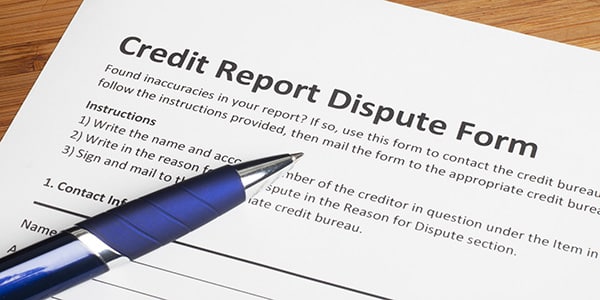When is the Best Time to Refinance a Car?
When is the Best Time to Refinance a Car?
Timing matters when it comes to refinancing your current auto loan. A well-timed refinance can get you a lower interest rate, lower your monthly payments, or even help you pay off your vehicle sooner. But jumping in too early—or waiting too long—can lead to missed opportunities or loan denial. Knowing how your credit profile, market trends, and vehicle value affect your options can help you decide when refinancing makes the most sense.
What Is Auto Loan Refinancing?
Auto loan refinancing is the process of replacing your current vehicle loan with a new one—often through a different lender—under new, better terms. The new loan pays off the remaining loan balance on your existing loan and starts a fresh repayment schedule. Most borrowers refinance to secure lower auto loan rates, shorten their term, reduce monthly loan payments, or remove a co-signer.
This is often referred to as an auto loan refinance. It may be done with a new lender like a bank, credit union, online lender, or even your current lender, depending on where you can get the best deal. Some borrowers also explore a cash-out refinance, where they borrow more than the payoff amount and use the difference for other expenses.
You’ll still go through a loan application and credit approval process. Lenders will evaluate your creditworthiness, income, vehicle condition, and more. Understanding the full refinancing process is essential to make sure the new loan actually benefits your financial situation.
Signs It Might Be the Right Time to Refinance:
Several indicators suggest you might be in a good position to refinance your car loan. Here’s when it may make sense to consider it:
Your Credit Score Has Improved
A higher FICO score than when you first took out the loan can unlock significantly better loan offers. Many borrowers initially secure car loans with bad credit, then refinance after six to 12 months of on-time payments. If your score has gone from subprime to fair or good, you’re more likely to qualify for favorable terms and best rates.
Even borrowers with fair credit may benefit from a refinance loan if their score has meaningfully improved. And because your FICO score affects not just interest rates but eligibility, it’s one of the first things to consider when revisiting your loan.
Interest Rates Have Dropped
Auto loan refinance rates tend to follow national interest rate trends. If market rates are down or you originally financed through a dealership with a high markup, refinancing now could save you a significant amount in total interest. Even a small reduction in your APR can make a big difference over the course of the loan.
Be sure to compare refinance rates across several lenders to find the most competitive option.
You Want Lower Monthly Payments
Reducing your monthly financial obligations is a common goal for refinancing. Whether you’re adjusting to a change in income or just want more breathing room in your budget, refinancing can help you secure lower monthly payments—either by locking in a better interest rate or choosing a longer loan term.
A longer loan term spreads out your car payments over more months. Keep in mind that while this lowers your monthly bill, it may increase the total interest paid over the life of the loan.
Your Loan Terms Don’t Fit Your Needs
If your current loan doesn’t match your financial situation—maybe your loan payments are too high, your interest rate is fixed when variable would be better (or vice versa), or you want to remove a co-signer—it may be time to refinance.
This is also a good opportunity to consolidate multiple payments or avoid default if you’re struggling. Some people even consider switching to a personal loan if it better aligns with their overall debt structure.
You Didn’t Shop Around the First Time
If you took the first offer from a dealership or didn’t compare rates from multiple lenders, there’s a strong chance you’re overpaying. Many borrowers don’t realize they could have qualified for a better deal—especially if their credit wasn’t as bad as they thought.
Getting prequalified now gives you access to current offers without triggering a hard inquiry. It’s an easy way to see if there’s room to improve your terms.
When You Might Want to Wait
Refinancing doesn’t always work in your favor. These scenarios may be reasons to pause or reconsider.
You Just Bought the Car
Lenders usually require you to wait at least 60–90 days before refinancing. If you refinance too early, you might not qualify for the best offers or your vehicle might not yet have enough equity.
Waiting at least six months after you buy a new car allows your credit score to reflect consistent payments and gives your car time to stabilize in value—especially important with a used car, which can depreciate faster than expected.
Your Vehicle Is Too Old or Has High Mileage
Some lenders won’t refinance used cars that are over 10 years old or have more than 100,000 miles. If your car falls into this category, your options may be limited, and you could face a higher interest rate even with good credit.
Always check lender requirements for model year, mileage, and minimum loan amount.
There Are Prepayment Penalties or Origination Fees
Review your existing loan agreement for prepayment penalties or origination fees. These charges can eat into your savings and negate the benefits of refinancing. Some loans include fees for paying off the loan early, while others charge processing fees for the new loan itself.
Compare the total costs—fees plus interest—before moving forward with refinancing.
You’re Near the End of the Loan Term
If you’re almost done repaying your current loan, the savings from refinancing may be minimal. Most of the interest is front-loaded, so the later months go primarily toward the principal. By the time you’re in your final year, a refinance may not reduce your costs enough to justify the refinancing process.

How to Prepare for an Auto Loan Refinance:
Being ready when the opportunity arises can help you lock in the best deal. Here are some steps to prepare:
Check Your Credit and Financial Profile
Start with your FICO score and credit report. Address any errors and work to improve your score if needed. Lenders also look at your financial situation overall, including your debt-to-income ratio and payment history.
If you’ve missed payments or have accounts in collections, you may need to wait and rebuild before qualifying for favorable terms.
Know Your Car’s Value and Payoff Amount
Find out your car’s trade-in value and compare it to your payoff amount. Being “right-side-up” (owing less than the car is worth) gives you better chances of approval. If your loan is underwater, you may need to wait or consider a cash-out strategy to restructure your debt.
Compare Lenders and Get Prequalified
Use online tools or contact lenders directly to compare loan offers. Getting prequalified doesn’t affect your credit and gives you a preview of your options.
Pay attention not just to the rate, but to loan term, origination fees, flexibility, and whether the lender offers mobile or online banking tools to help manage payments.
Use an Auto Loan Calculator
Run the numbers using a loan calculator. Compare your current loan payments to what you’d pay under a refinance. Look at total cost over time and monthly affordability—not just the interest rate.
This is especially helpful if you’re juggling other financial goals like building a savings account, contributing to retirement, or managing credit cards.
The best time to refinance a car comes down to the right combination of personal readiness and market conditions. If your financial situation has improved, interest rates have dropped, or your current lender isn’t offering competitive terms, refinancing can be a powerful tool to improve your overall personal finance strategy.
Make sure to weigh the costs—like hard inquiries, origination fees, or longer terms—against the benefits of lower monthly payments, reduced total interest, or better loan offers. And remember, refinancing is about more than just rate shopping; it’s about aligning your car loan with your broader goals, whether that’s flexibility, affordability, or long-term savings.
Take the time to compare options, understand the full refinancing process, and make sure the new loan supports your overall financial well-being. When done at the right time, refinancing can put you in the driver’s seat of your own financial journey.











